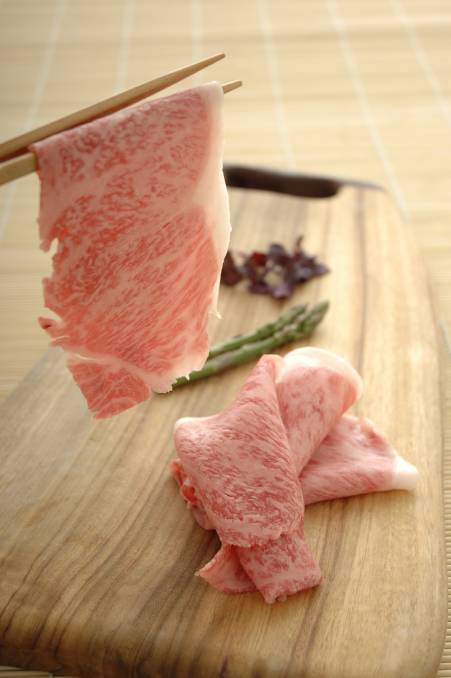
How one beef brand has defied COVID
Lessons learned from previous crises about diversification of markets and the value of protecting established relationships have served high-end branded beef operation Blackmore Wagyu well during the current health pandemic.
The sixth generation Australian family-owned farming business produces all the beef itself which is sent chilled to high-end fine dining restaurants and gourmet butchers in 14 countries under the Blackmore label.
Defying the trend of premium branded product being hit hard as the restaurant trade suffers under COVID-19, Blackmore has this month run at 120 per cent of its normal kill because its customers are asking for more and new orders, including from entirely new countries, have come on board.
Even domestic sales are back to 70pc of pre-pandemic turnover.
Blackmore runs around 4000 head of fullblood Wagyu on 3200 hectares at Alexandra in Victoria, typically processing between 60 and 70 head a month.
David Blackmore said business in France was thriving, other European Union markets had held strong, the Middle East and some Asian countries were still taking product and there was even good demand from the pandemic-ravaged United States.
“We could probably sell double what we are producing at the moment, and we’re having the best season in 40 years in our cattle growing country,” he said.
The secret
Mr Blackmore believes a few key things have lined up well for his business, including the fact they have remained niche and small, breeding all their own stock in order to maintain consistency in carcases.
Blackmores pioneered the brand game in Australian beef, being one of the first to have their name on menus, and Mr Blackmore said consistency was key to brand success.
“Alongside that, this is the third big crisis we have come through,” he said.
“In 2005, we were sending all our product to Japan when mad cow disease broke out there.
“We quickly pivoted and found new markets and the US became our biggest customer.
“Then when the global financial crisis hit, we lost our US market and that’s why we diversified further.
“So this time around, we had good foundations in that we had many markets. And that we knew not to panic.”
The first decision made at Blackmores when times took a turn for worst this year was to simply leave all the cattle on feed.
It’s difficult for a business to opt to forego revenue for a period but Mr Blackmore is adamant discounting to offload product has negative consequences to a brand.
“By May, our international markets were placing orders again but our problem was getting flights,” he said.
“We are only a small supplier and all our beef was exported in passenger flight holds, which of course were no longer available.
“We’ve had to rely on cargo freight companies and that has meant being very creative with route organisation. Our transport costs have skyrocketed – US shipments that were $1000 are now costing us $5000 and Europe has gone from a typical $3000 to $10000.
“That is cost we are choosing to wear, in order to respect the relationships we have with long-standing customers.”
“Keeping valued customers is the most important thing in times like this.”